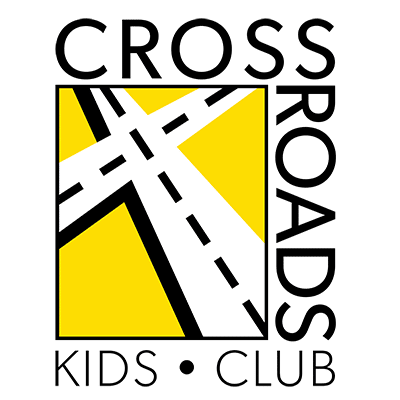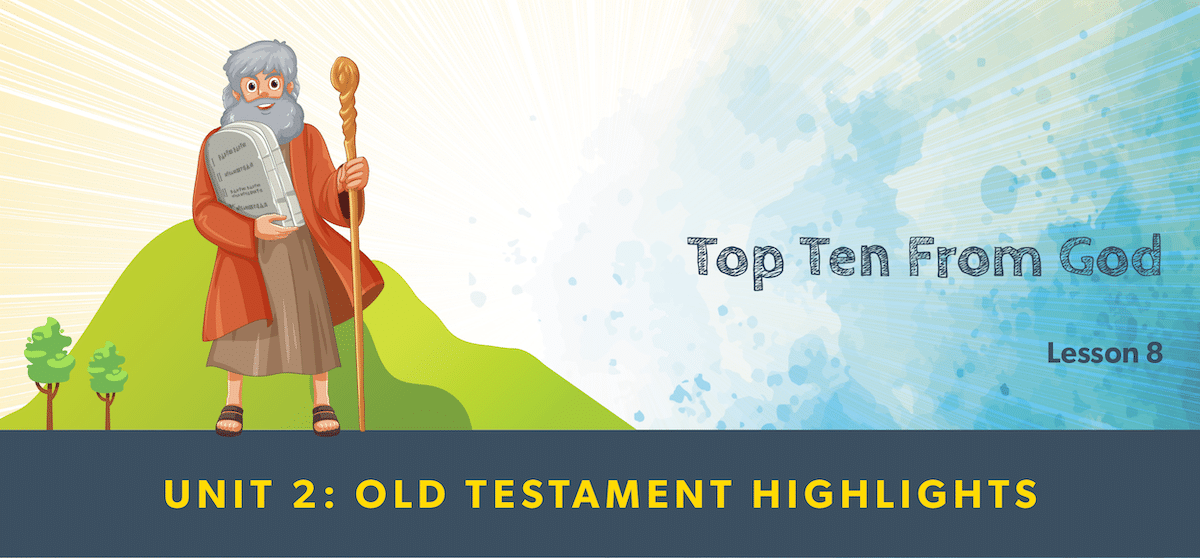
Prepare
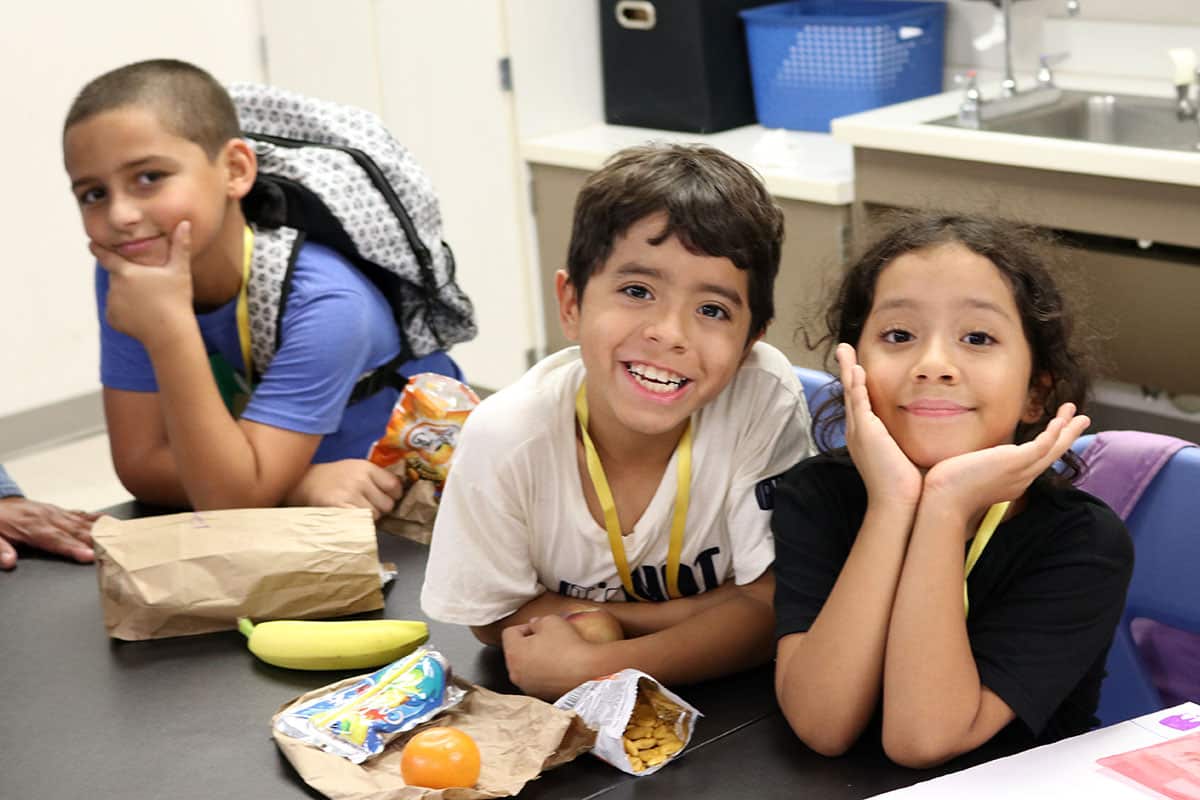
Prepare your heart to teach.
Plan for the lesson.
Materials Needed for Small Group:
Activity: Commandment Chain
Activity: Missing the Mark
Activity: Real-Life Choices
Materials Needed for Large Group:
Materials Needed for Games:
Game: Commandment Relay
Game: Hit the Mark – Sin and Grace Game
Game: Commandment Charades
Connect
Connect with the kids and make them feel heard and cared for.
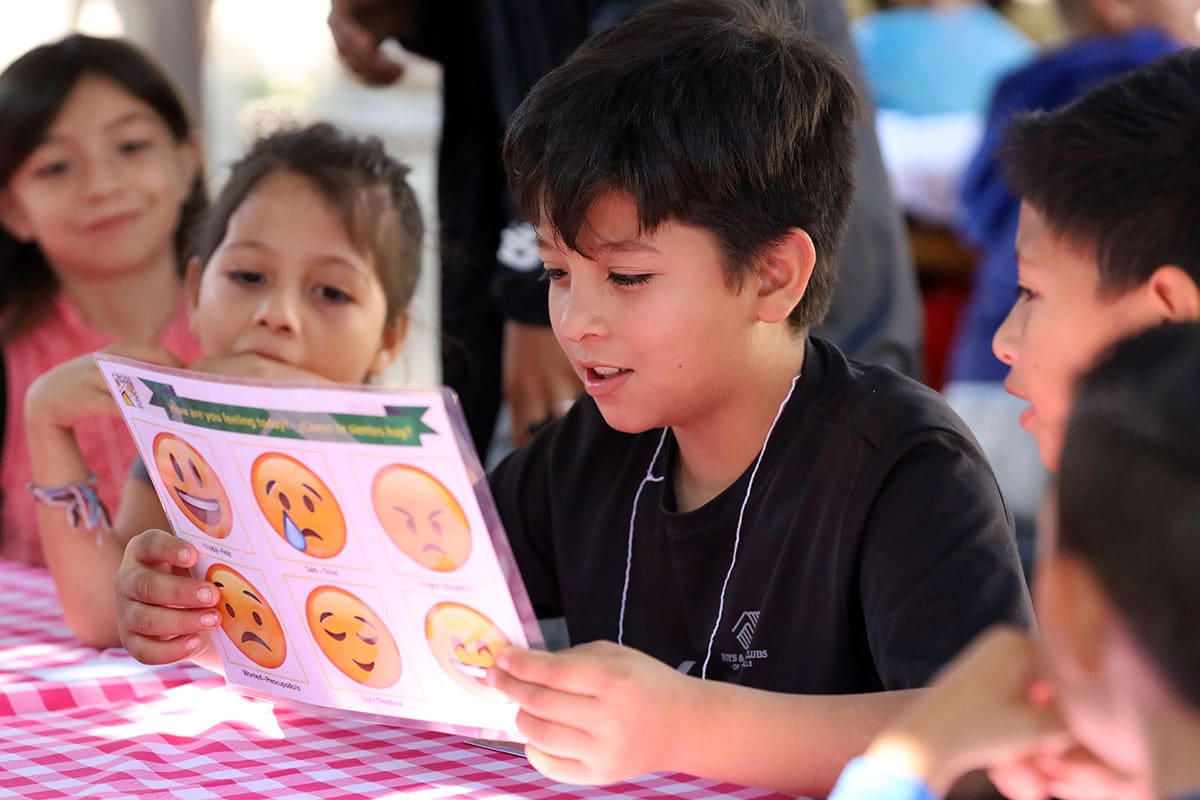
Small Group Session 1
Distribute name tags and snacks. Choose one of the following activities to do together while children eat their snack.
Share and Listen
Option 1
Ask the children to share their highs and lows (the best and worst things that happened to them either today or from the past week).
Option 2
Ask the children to take turns sharing how they are feeling today using the “How Are You Feeling?” chart.
Pray Together
Collect prayer requests from the students. The leader or a student can pray for the entire group, or a leader can pair up students and invite them to pray for one another.
Opening Question
- “What are some rules you have to follow at home or school?”
Let kids share their answers and discuss why rules exist.
- “What happens if we don’t follow the rules?” (Possible answers: We get in trouble, people get hurt, things get messy, etc.)
“Today, we’re learning about some of the most important rules ever—rules that God gave his people to show them how to love him and love others!”
Activity: Rule or No Rule?
Objective: Help kids think about the importance of rules.
Read different statements and have kids give a thumbs up if they think it’s a good rule, or a thumbs down if they think it’s not needed.
Examples:
- Always wash your hands before eating. 👍
- Eat candy for every meal. 👎
- Never share your toys. 👎
- Look both ways before crossing the street. 👍
- Do your homework before playing. 👍
- Always say “thank you” when someone helps you. 👍
- Jump on your bed whenever you want. 👎
- Never brush your teeth. 👎
- Share your toys with friends. 👍
- Only do your homework if you feel like it. 👎
- Listen to your parents and teachers. 👍
- Eat dessert before dinner every day. 👎
- Wait your turn in line. 👍
- Run across the street without looking. 👎
- Be kind, even when others are not kind to you. 👍
- Stay up all night and never sleep. 👎
- Help someone who drops their books. 👍
- Take something from a store without paying. 👎
- Tell the truth, even when it’s hard. 👍
- Push people out of the way to be first. 👎
“We don’t always like rules because when we break them there are consequences but rules help us make good choices. God gave us his commandments to show us the best way to live!”
Head
Teach kids the story of the Gospel.
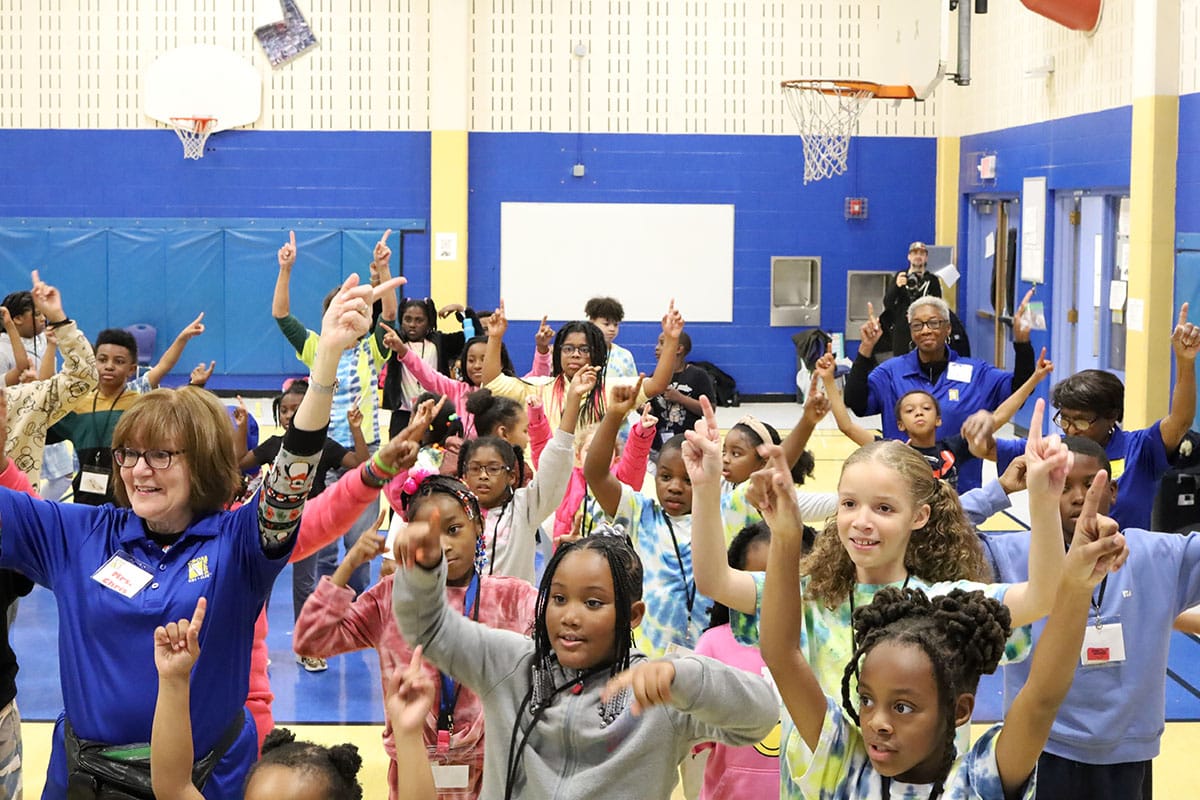
Large Group
Welcome the students to Crossroads and tell them you are glad they came this week.
Optional Starters
Feel free to choose one, two, or even all of these ideas to start Large Group!
“Who is Jesus” call and response
Prayer Prompt: “God, please help me with…”
(Talk to God about something that’s hard for you right now, like school, friendships, or being brave.)
Opening Song: “Stories” by Go Fish
Opening Prayer
Tell kids that closing their eyes and folding their hands together can help keep them focused and not distract those around them.
Opening Question
- “What are some rules you have to follow at home or school?”
- “Why do we have rules? What happens if there are no rules?”
“Rules help us stay safe and treat each other well. God also gave his people important rules to help them follow him and love others.”
The Story: God Gives the Ten Commandments
Material Needed:
Instructions:
- At the top, write in large, bold letters: “The Ten Commandments”
- You can underline it, add a border, or use bubble letters for extra flair.
- Write Each Commandment with a Simple Phrase and Motion
- Number each one clearly (1–10), and use easy-to-understand wording. Example:
- Put God First
- Worship Only God
- Respect God’s Name
- Keep the Sabbath Holy
- Honor Your Parents
- Do Not Murder
- Be Faithful in Marriage
- Do Not Steal
- Do Not Lie
- Do Not Covet
Hand Motions for the Commandments
Use simple actions for each commandment. Tell students that with each of the 10 commandments we will have a motion. Use the explanations after each commandment to help children understand what each commandment means.
- Put God first (Hold up 1 finger.)
Love God more than anything else. He should be the most important part of your life. - Worship only God (Hold up 2 fingers and shake head “no” to other gods.)
Only pray to and follow the one true God—don’t let anything else take his place. - Respect God’s name (Hold up 3 fingers and touch your mouth.)|
Speak about God with love and respect. Don’t use his name in a wrong or careless way. - Keep the Sabbath holy (Hold up 4 fingers and rest your head on hands.)
Take a day each week to rest and focus on God. It’s a special day to be with him and your family. - Honor your parents (Hold up 5 fingers and salute.)
Listen to and respect your mom and dad. Be kind and obey them. - Do not murder (Hold up 6 fingers like a stop sign.)
God wants us to protect life and treat others with care—not hurt anyone. - Be faithful in marriage (Hold up 7 fingers and make a heart.)
Husbands and wives should love and stay true to each other—just like God is faithful to us. - Do not steal (Hold up 8 fingers and pretend to grab something.)
Don’t take anything that doesn’t belong to you. Respect other people’s things. - Do not lie (Hold up 9 fingers over mouth.)
Always tell the truth. Don’t try to trick others or hide the truth. - Do not covet (Hold up 10 fingers and pretend to reach for something you don’t have.)
Be thankful for what you have. Don’t be jealous or wish to take what someone else has.
Consider going through them a second time to help students remember each commandment.
Ask:
- “Which of these commandments do you think is the hardest to follow?”
- “Why do you think God gave these commandments?”
- “Which ones are about loving God?” (The first four)
- “Which ones are about loving others?” (The last six)
- “Why do we sometimes struggle to follow these rules?” (Allow students to answer)
“God gave us the Ten Commandments, shows us what is right, to help us love him and love others. These aren’t just a list of rules to follow—they are a guide for living the best kind of life. When we put God first, respect others, and choose what’s right, we show love in our actions.
But here’s something important: no one can follow all of God’s rules perfectly. We all mess up sometimes. That’s why we need Jesus. He followed every commandment perfectly, and he offers us forgiveness when we don’t keep God’s commandments. God’s rules help point us to our need for him.
So remember—God’s commands aren’t meant to make life harder. They’re meant to bring freedom and purpose. They help us live with peace, joy, and love in our hearts.
- How can you follow one of God’s commandments this week? (Example answers: Obey parents, be honest, show kindness.)
This week, let’s try to follow God’s commandments and show his love to others!”
Close in Prayer
“Let’s pray together and thank God for giving us his commandments and for loving us, even when we mess up.”
Thank God for giving us his Word and teaching us right from wrong. Ask for help to follow him with love and obedience.
Pray for wisdom to make good choices every day.
Games
Interactive games that bring lesson concepts to life, helping children understand and remember what they’re learning. By connecting play with education, kids can explore ideas in a fun way that strengthens their understanding.
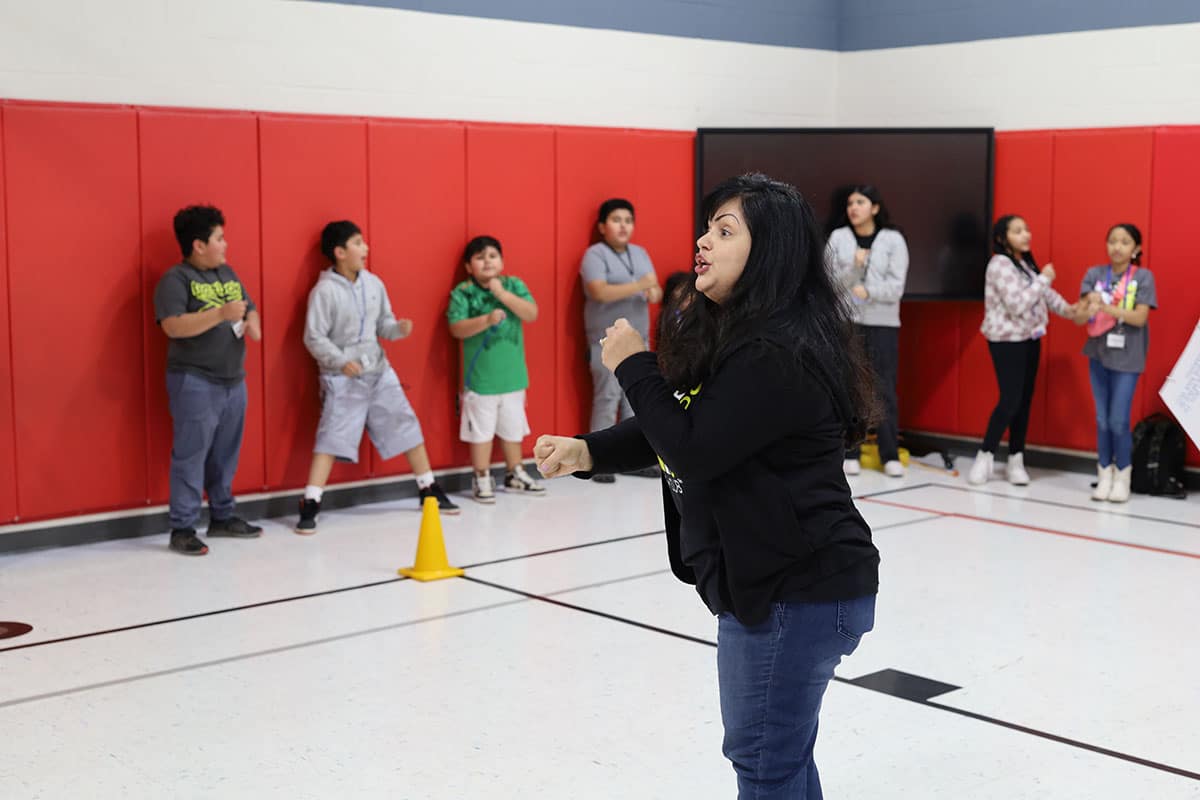
Games
Game: Commandment Relay
Materials Needed:
How to Play:
- Split kids into two teams. Place the 10 commandment cards in a basket at one end of the room and an empty basket at the other end.
- Each team sends one player at a time to grab a commandment card and race back to their team.
- The team works together to put the commandments in order. The first team to correctly arrange the commandments wins!
Connection to Lesson: This game helps kids remember and reflect on God’s rules.
Would You Rather? – Commandment Edition
Materials Needed:
How to Play:
- Designate two sides of the room (one side is “Yes,” the other is “No”).
- Read a real-life choice and have students run to the side that represents their answer.
- After each choice, discuss why that choice does or does not align with the Ten Commandments.
Example Scenarios:
- Would you rather tell the truth or make up a story to avoid trouble? (Relates to “Do not lie”)
- Would you rather honor your parents or ignore them when they give instructions? (Relates to “Honor your father and mother”)
- Would you rather take something without asking or wait for permission? (Relates to “Do not steal”)
Connection to Lesson: Helps kids apply the commandments to real-life choices and understand the heart behind God’s rules.
Game: Hit the Mark – Sin and Grace Game
Materials Needed:
How to Play:
- Kids stand behind the line and try to hit the target with a balloon.
- The challenge? It’s nearly impossible to hit the mark!
- After several rounds, introduce a “helper” (representing Jesus). This person stands closer to the target or gently directs the balloon.
Explain: The Ten Commandments are like the target—no one can hit it perfectly on their own. That’s why we need Jesus to help us live for God!
Connection to Lesson: Reinforces the idea that no one is perfect, but Jesus bridges the gap between us and God.
Commandment Charades
Materials Needed:
How to Play:
- Split the group into two teams. One player from a team picks a slip and acts out the commandment without speaking.
- Their team tries to guess the commandment within 30 seconds.
- If they guess correctly, they earn a point!
Example Scenarios:
- “Do not steal” → Act out sneaking and taking something.
- “Honor your father and mother” → Act out helping a parent.
- “Do not lie” → Act out crossing fingers behind the back.
Connection to Lesson: Helps kids think through what each commandment looks like in everyday life.
Follow the Leader: Obedience Challenge
Materials Needed:
How to Play:
- One leader (teacher or student) gives commands like:
- “Jump on one foot!”
- “Spin around!”
- “Clap three times!”
- Every few rounds, give two commands at once—one following God’s ways, one going against them (e.g., “Give a friend a high five” vs. “Take something that’s not yours”).
- Kids must choose to only follow the good commands!
Connection to Lesson: Reinforces the idea that obedience matters and we must choose to follow God’s instructions.
Heart
Facilitate activity and study to help kids know and love Jesus.
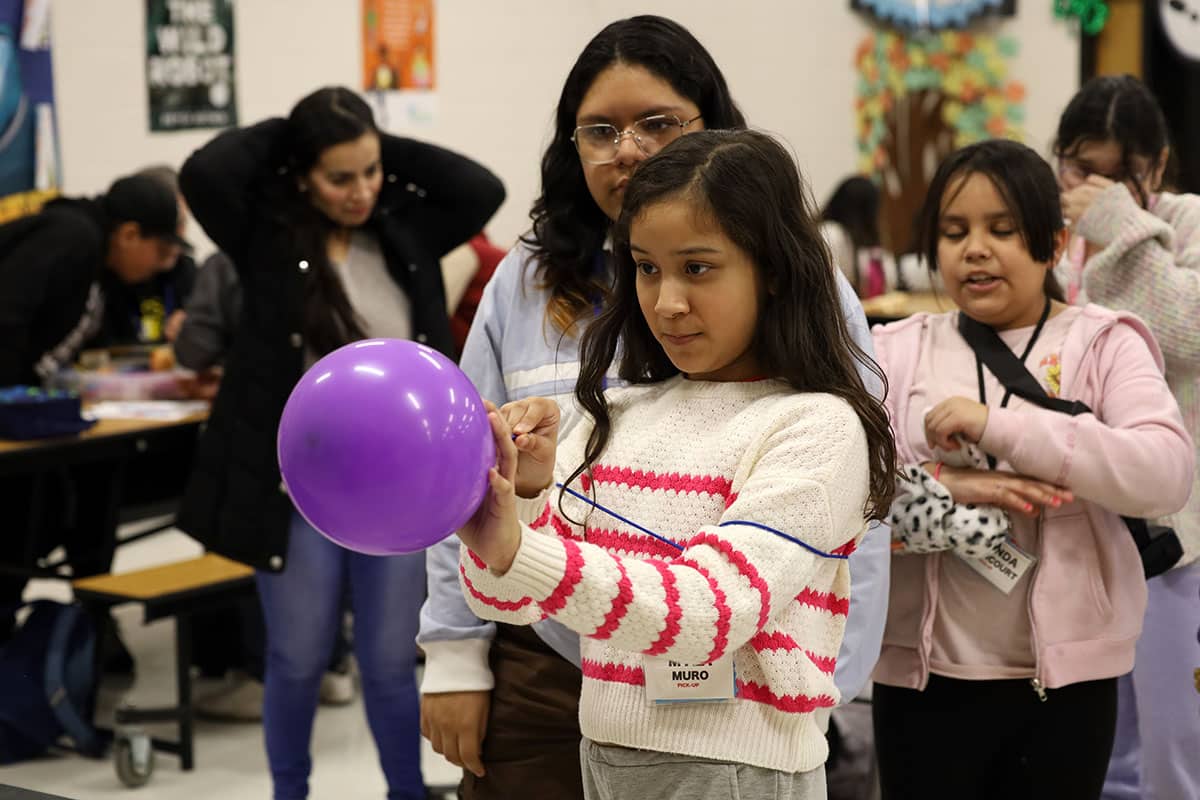
Small Group Session 2
Share the Key Takeaway: God gave us his commands so we can love him and love others.
Activity: Commandment Chain
Use Printout 1 (The 10 Commandments). Give each child a strip of colored paper. Have them write or draw one of the Ten Commandments (or a way to obey God) on it.
“Let’s make a paper chain to show how God’s commands connect us to him and to each other!”
Link the strips together to make a chain, showing how God’s rules connect us to him and each other.
While they work on making their chain ask:
- “Why do you think God gave us these rules?”
- “What do these commandments teach us about God?”
- “How do these rules help us love others?”
- “Which one do you think is the hardest to follow?”
- “Can we follow all the commandments perfectly? Why or why not?”
- “How does Jesus help us when we fail?”
“You all did a great job thinking about God’s commandments and how they help us love him and love others. This chain reminds us that God’s rules connect us—to him and to each other. They show us what it means to live in a way that honors him.
But here’s something important to remember: we can’t follow all of God’s commands perfectly. No matter how hard we try, we all mess up. We may tell a lie, disobey a parent, or act selfishly. And that’s why today’s lesson is so important:
No one can follow God’s rules perfectly—that’s why we all need his forgiveness.
God didn’t give us the Ten Commandments to make us feel like we have to be perfect—He gave them to show us that we need a Savior. Jesus came to forgive us when we fall short and help us live the way God wants us to.”
Activity: Missing the Mark
Objective: Help kids understand that we all miss the mark when it comes to following God’s commands—and that Jesus forgives and helps us.
Material Needed:
Set up the target on a wall of the room. Place a throwing line (made with tape or rope) a few feet away from the target.
Instructions:
Each player (or team) must throw a balloon from behind the line and try to hit the target. However, the challenge is the target is too far for them to hit it easily!
Have each child take a turn throwing the balloon. The goal is to hit the target, but the distance makes it nearly impossible to do so.
Let them try several times, but don’t move the line closer or make it easier—let them experience the frustration of missing the target on their own.
Let a leader move closer and toss the balloon into the target for them.
“Just like you needed help to hit the target, we need Jesus to help us because we can’t be perfect on our own!”
Discussion
- “Was it easy or hard to hit the target?”
- “Did you want to give up after missing a few times?”
- “What happened when someone helped you?”
- “How is this game like trying to be perfect? (We can’t do it on our own!)”
- “Who helps us when we fall short of what God wants? (Jesus!)”
“Romans 3:23 says, “For everyone has sinned; we all fall short of God’s glorious standard.””
- “How does this verse relate to the game?”
- “Can we ever be perfect enough on our own?”
- “Why do we need Jesus?”
- “How does Jesus help us when we mess up?”
“Just like we couldn’t hit the target on our own, we can’t be perfect on our own either. The Bible says that we all ‘miss the mark’ (which is what sin means), but the good news is that Jesus did what we couldn’t. He lived a perfect life and took the punishment for our mistakes so that we can be forgiven and have a relationship with God. We don’t have to be perfect—Jesus has already hit the target for us!”
Extra Activity: Real-Life Choices
Give kids different real-life scenarios (Printout 3).
For each scenario ask:
- “Which commandment does this relate to?”
Examples:
“You see your friend drop money on the floor.” (Do not steal)
“You get really mad at your sibling.” (Do not hurt others)
“You’re tempted to say you did your homework when you didn’t.” (Do not lie)
“Your parents ask you to clean your room.” (Honor your parents)
“Your friend tells a secret and asks you to lie for them. What do you do?” (Commandment #9 – Do not lie)
“You hear someone use God’s name in a careless or disrespectful way. What should you do?” (Commandment #3 – Do not misuse God’s name)
“Your parents say no to something you really want. Instead of respecting their decision, you argue and talk back. How can you handle it differently?” (Commandment #5 – Honor your father and mother)
“Your friend’s family just got a new game console, and you feel jealous. What should you do?” (Commandment #10 – Do not covet)
Follow-up Questions:
- “Which of these situations would be hardest for you?”
- “Have you ever been in a situation like one of these? What did you do?”
- “How can following God’s commands help us make better choices?”
- “What should we do when we mess up and break one of God’s commandments?”
- “How does Jesus help us when we fall short?”
“God’s rules help us make wise choices every day!”
Going Deeper
- “Why do you think God gave us rules like the Ten Commandments? How do they help us?”
- “Do you think following rules is always easy? Why or why not?”
- “How do the Ten Commandments show us that we need Jesus?”
- “Jesus said the two greatest commandments are to love God and love others (Matthew 22:37-40). How do the Ten Commandments help us do that?”
- “Which of the Ten Commandments do you think is the hardest to follow? Why?”
- “Sometimes we break God’s rules. How can we make things right when we do?”
- “What is one way you can show love for God or love for others this week by following one of the Ten Commandments?”
Hands
Lead kids to live out the mission of the Gospel.
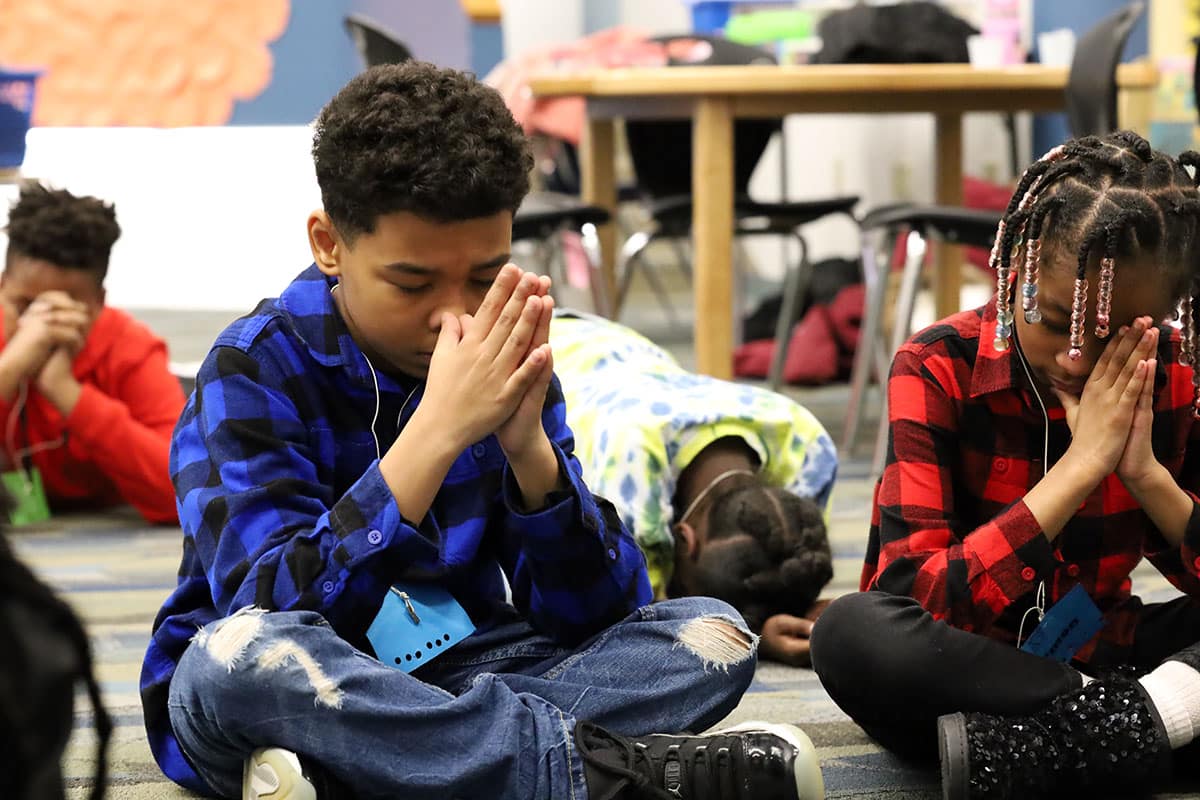
Ending Together
“Now that we’ve learned about God’s Ten Commandments, let’s talk about what it means for your life—not just today, but every day.
God gave us these commandments to help us love him and love others. And even though we can’t follow them perfectly, we can ask God to help us obey him and make good choices.”
Invite each child to pick one link from the chain—maybe one they wrote or one that stands out to them.
Ask:
- “Why did you pick that one?”
- “How can you follow that command this week?”
Encourage them to come up with a real-life way they can live out that commandment in the next few days.
Examples:
- “Honor your parents” – “I can help clean up without being asked.”
- “Do not lie” – “I’ll tell the truth even when it’s hard.”
- “Put God first” – “I’ll pray before I start my day or before a test.”
Response and Reflection
Ask:
- “What’s one commandment you can focus on this week?”
- “How can we ask God to help us follow his ways?”
“Let’s remember that following God’s commands isn’t about being perfect. It’s about showing love—to God and to others. And every time we choose to obey, we are following him more closely.”
Close in Prayer
Pray: “God, thank you for giving us your commandments to guide us. Help us love you and love others. Thank you for sending Jesus to forgive us when we make mistakes. Help us to follow you every day. Amen.”
Your Feedback Matters To Us!
Tried this lesson in your club?
We’d love to hear how it went! Your feedback helps us review and refine our curriculum so we can continue to support leaders like you and improve the experience for kids across all Crossroads Kids Clubs. Thank you for taking a moment to share your thoughts!
